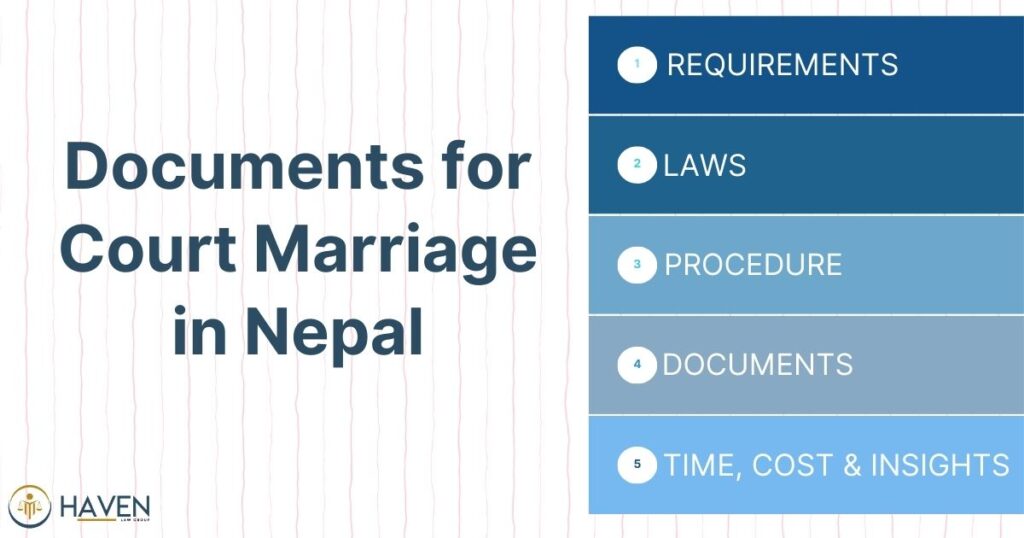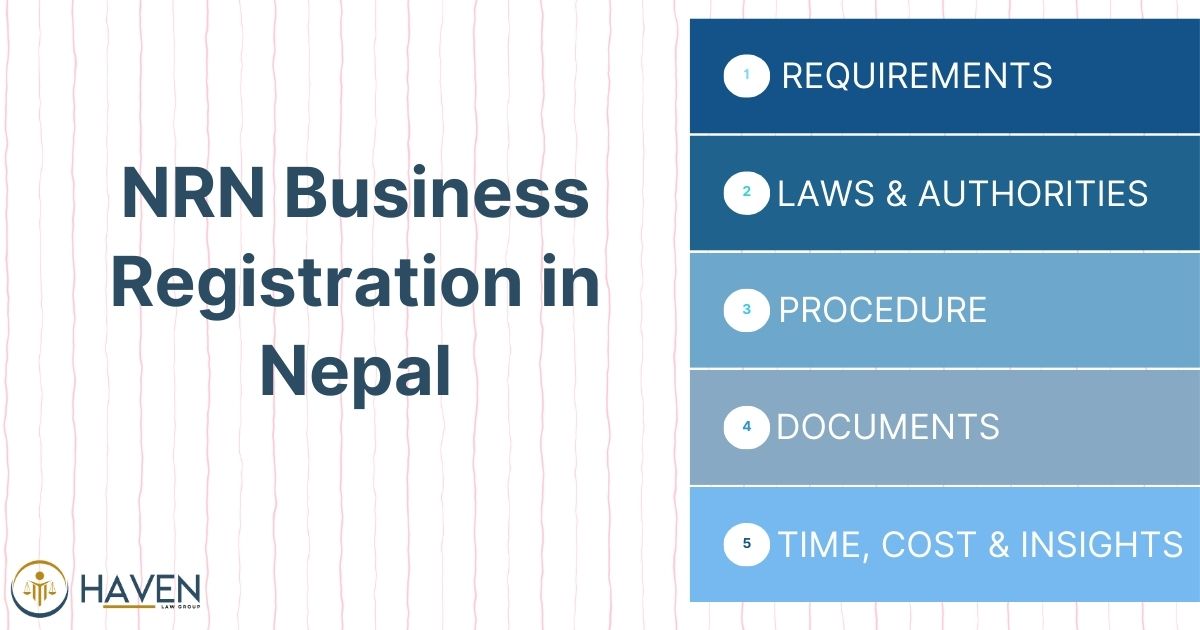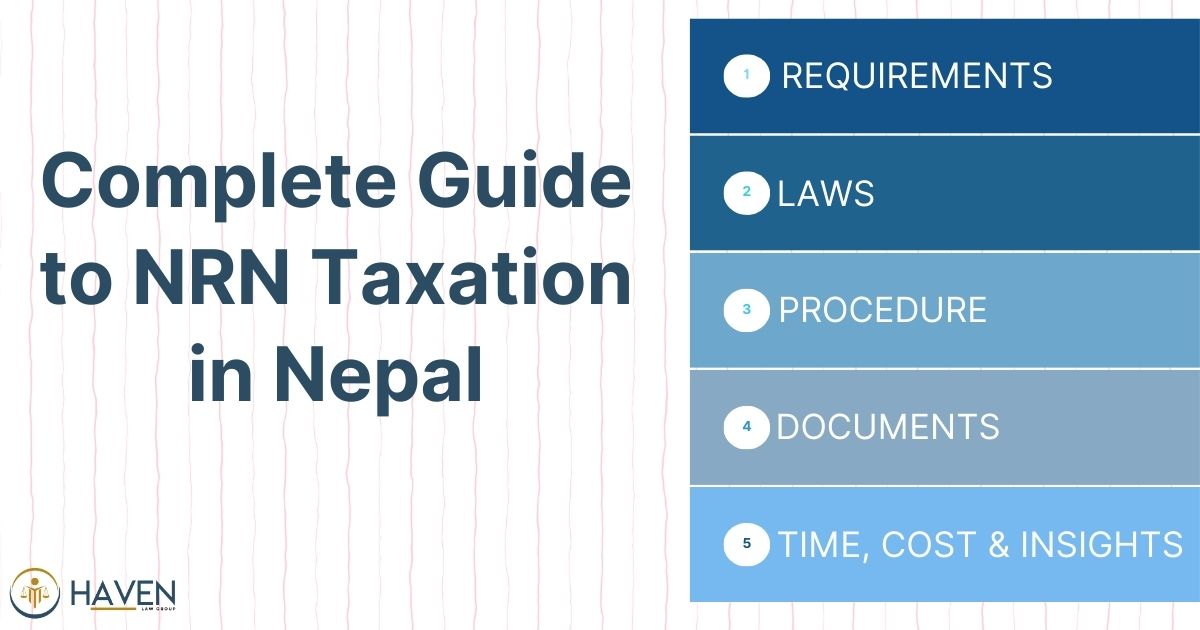What documents are required for court marriage in Nepal?
Court marriage in Nepal requires several essential documents to ensure legal compliance and validity. The primary documents needed include:
- Citizenship certificates of both bride and groom
- Recent passport-sized photographs
- Birth certificates or age proof documents
- Affidavit stating willingness to marry
- Witness identification documents
- Marriage application form
- Police verification report
Foreign nationals must provide additional documents like valid passports and visas. The District Court or local government office handling the marriage registration will verify all submitted documents. Ensuring all required paperwork is complete and authentic helps avoid delays in the court marriage process. Couples should carefully review the document checklist provided by authorities before applying for court marriage in Nepal.
Is citizenship proof mandatory for court marriage?
Citizenship proof is mandatory for court marriage in Nepal. The Nepali Marriage Registration Act requires both parties to provide valid citizenship certificates as primary identification documents. These certificates establish the individuals’ Nepali nationality and legal age for marriage. For Nepali citizens, no other document can substitute the citizenship certificate for court marriage purposes.
The citizenship certificate contains essential details like full name, date of birth, permanent address, and parents’ names, which are necessary for marriage registration. Without valid citizenship proof, the court cannot proceed with the marriage solemnization. Non-Nepali citizens must provide their passport and visa as equivalent identification proof. The strict requirement of citizenship documents helps prevent fraudulent marriages and ensures compliance with Nepal’s marriage laws.
Are photographs needed for court marriage?
Photographs are an essential requirement for court marriage in Nepal. The marriage registration process mandates recent passport-sized photographs of both the bride and groom. These photographs serve multiple purposes:
- Identification verification
- Attachment to official marriage documents
- Record-keeping by the court
- Issuance of marriage certificate
Typically, 2-4 recent photographs of each individual are required. The photographs should be clear, with a plain background, and show the full face. Some authorities may specify size requirements, usually around 35mm x 45mm. Couples should ensure their photographs meet all stipulated criteria to avoid processing delays. The photographs become part of the permanent marriage record and may be used for future reference or document verification. Including proper photographs helps maintain accurate records and prevents potential identity-related issues in the future.
Is an affidavit required for court marriage?
An affidavit is a mandatory document for court marriage in Nepal. This sworn statement, signed by both parties, declares their willingness to marry and confirms that they meet all legal requirements for marriage. The affidavit typically includes:
- Full names and addresses of both parties
- Confirmation of legal age for marriage
- Declaration of unmarried status
- Statement of free consent to marry
- Acknowledgment of understanding marriage laws
The affidavit must be notarized by a licensed notary public or sworn before a judicial officer. This document serves as legal proof of the couple’s intention to marry and their eligibility under Nepali law. It protects against forced marriages and ensures both parties are entering the union voluntarily. The court relies on this affidavit as a crucial piece of evidence when approving the marriage registration. Providing a properly executed affidavit is essential for a smooth court marriage process in Nepal.
What documents are needed for foreign couples?
Foreign couples seeking court marriage in Nepal must provide additional documents to comply with legal requirements. These include:
- Valid passports with appropriate visas
- No Objection Certificate from respective embassies
- Translated and authenticated birth certificates
- Single status certificate or divorce decree if applicable
- Police clearance certificate from home country
- Nepali marriage application form
- Recent photographs
- Affidavit declaring intention to marry
All foreign documents must be translated into Nepali or English and authenticated by the relevant authorities. The Nepal Immigration Office may require additional documentation to verify the legality of the foreigners’ stay in Nepal. Foreign couples should consult with the District Court or a legal professional to ensure they have all necessary documents. Proper preparation of these documents facilitates a smoother court marriage process for international couples in Nepal.
Do witnesses need ID for court marriage?
Witnesses play a crucial role in court marriages in Nepal, and they are required to provide valid identification documents. The following points outline the requirements for witness identification:
- Witnesses must present their citizenship certificates or valid government-issued ID
- Passport or voter ID cards may be accepted as alternative forms of identification
- At least two witnesses are typically required for a court marriage
- Witnesses should be adults of legal age (18 years or older)
- The court may verify the witnesses’ identities and relationship to the couple
Proper identification of witnesses helps ensure the legitimacy of the marriage ceremony and prevents potential fraud. Witnesses may be asked to sign the marriage register or provide testimony if required. Their presence and identification contribute to the legal validity of the court marriage process in Nepal. Couples should inform their chosen witnesses about the ID requirements well in advance of the marriage date.
Is birth certificate proof mandatory?
While birth certificates are not always mandatory for court marriage in Nepal, they are highly recommended and often requested. Here’s why birth certificates are important:
- They provide accurate proof of age, ensuring both parties meet the legal marriage age
- Birth certificates can verify personal details like full name and parents’ names
- They serve as additional identification alongside citizenship certificates
- For individuals without citizenship certificates, birth certificates can be crucial age proof
If birth certificates are unavailable, alternative age proof documents may be accepted, such as:
- Academic certificates
- Passport (for foreign nationals)
- Horoscope or traditional birth records
However, the acceptance of alternative documents is at the discretion of the court or local authority handling the marriage registration. To avoid complications, couples should attempt to obtain their birth certificates if possible. If birth certificates are unavailable, they should consult with the relevant authorities about acceptable alternatives well before the intended marriage date.
Can incomplete documents delay marriage?
Incomplete documentation can significantly delay the court marriage process in Nepal. The following points highlight the impact of incomplete documents:
- Marriage applications may be rejected outright if essential documents are missing
- The court may require additional time to review and verify incomplete or unclear documents
- Couples may need to reschedule their marriage date if documents are not in order
- Incomplete documentation can lead to legal complications or questions about the marriage’s validity
- Additional fees may be incurred for resubmission of documents or rescheduling
To avoid delays, couples should:
- Carefully review all document requirements
- Gather all necessary paperwork well in advance
- Double-check for completeness and accuracy of all documents
- Consult with legal professionals or court officials if unsure about any requirements
Ensuring all documents are complete, accurate, and submitted on time helps streamline the court marriage process and prevents unnecessary delays or complications.
Are translated documents valid for court marriage?
Translated documents are generally accepted for court marriage in Nepal, especially for foreign nationals or documents issued in languages other than Nepali or English. However, certain conditions must be met:
- Translations must be done by certified translators or recognized translation services
- Translated documents should be notarized or authenticated by relevant authorities
- Original documents must accompany the translations for verification
- The court may require additional authentication from embassies or consulates for foreign documents
Accepted translated documents typically include:
- Birth certificates
- Passports
- Single status certificates
- Divorce decrees (if applicable)
- Police clearance certificates
It’s advisable to have translations done well in advance and verified by appropriate authorities. This ensures that the translated documents meet all legal requirements and are readily accepted by the court for the marriage registration process. Couples should consult with the District Court or a legal professional to confirm specific translation requirements for their situation.
How to prepare documents for court marriage?
Preparing documents for court marriage in Nepal involves several steps to ensure a smooth process:
- Obtain a comprehensive list of required documents from the District Court or local authority
- Gather all necessary personal identification documents (citizenship certificates, passports)
- Acquire recent passport-sized photographs meeting specified requirements
- Obtain birth certificates or alternative age proof documents
- Prepare an affidavit declaring intention to marry and meeting legal requirements
- Arrange for witness identification documents
- Complete the marriage application form provided by authorities
- Translate any foreign documents into Nepali or English if necessary
- Authenticate and notarize all required documents
- Make multiple copies of all documents as per court requirements
- Organize documents in the order specified by the court
- Review all documents for accuracy and completeness
- Consult with a legal professional to ensure all requirements are met
Proper preparation and organization of documents help expedite the court marriage process and reduce the likelihood of delays or rejections. Couples should start gathering and preparing documents well in advance of their intended marriage date to allow time for any unforeseen issues or additional requirements.
Can lawyers verify court marriage documents?
Lawyers can play a significant role in verifying court marriage documents in Nepal. Their involvement can provide several benefits:
- Legal expertise in document requirements and validity
- Assistance in preparing and reviewing affidavits
- Guidance on proper document authentication and notarization
- Verification of document completeness and accuracy
- Advice on handling complex cases or unusual document situations
While lawyers cannot officially certify documents in place of government authorities, their verification can:
- Increase confidence in document validity
- Identify potential issues before submission to the court
- Streamline the document preparation process
- Reduce the risk of rejection due to document errors
Couples may choose to consult with a lawyer specializing in family law or marriage registration to ensure their documents meet all legal requirements. This extra step can provide peace of mind and potentially expedite the court marriage process. However, it’s important to note that final document acceptance remains at the discretion of the court or local authority handling the marriage registration.
Are duplicate documents accepted?
The acceptance of duplicate documents for court marriage in Nepal depends on various factors:
- Original documents are generally preferred and may be mandatory for certain items
- Certified true copies may be accepted for some documents, subject to court discretion
- Duplicate citizenship certificates can be obtained from the District Administration Office if originals are lost
- Photocopies of original documents are often required alongside originals for court records
In cases where original documents are unavailable:
- Affidavits explaining the absence of original documents may be required
- Additional verification processes may be implemented by the court
- Temporary acceptance of duplicates may be granted, pending submission of originals
It’s advisable to:
- Preserve original documents carefully
- Obtain certified true copies of important documents as backups
- Consult with court officials about specific policies on duplicate documents
- Be prepared to provide explanations or additional proof if using duplicates
While some flexibility may exist, couples should strive to provide original documents whenever possible to ensure a smooth court marriage process. The acceptance of duplicates often depends on the specific circumstances and the discretion of the officiating authorities.
FAQs
1. Are documents checked strictly?
Yes, documents for court marriage in Nepal are checked strictly. The court or local authority meticulously verifies all submitted documents to ensure compliance with legal requirements. This strict checking process helps prevent fraudulent marriages and ensures the legitimacy of the union. Officials may cross-verify information with other government databases or require additional proof if discrepancies are found. Couples should expect thorough scrutiny of their documents and be prepared to provide explanations or additional evidence if requested. The strict document checking process, while sometimes time-consuming, is essential for maintaining the integrity of the court marriage system in Nepal.
2. Can ID be replaced with other proof?
In most cases, primary identification documents like citizenship certificates or passports cannot be replaced with other forms of proof for court marriage in Nepal. These documents are considered essential for establishing identity and eligibility for marriage. However, in exceptional circumstances, such as loss of primary ID, the court may consider alternative forms of identification. These might include voter ID cards, driver’s licenses, or government employee ID cards, combined with additional supporting documents. Any substitution is at the discretion of the court and may require additional verification processes. Couples facing ID issues should consult with court officials or legal professionals well in advance to explore possible alternatives and understand the implications for their marriage registration.
3. Are extra copies needed?
Yes, extra copies of documents are typically needed for court marriage in Nepal. The court usually requires:
- Original documents for verification
- Multiple photocopies for court records and processing
- Extra copies for the couple’s personal records
The specific number of copies required may vary depending on the court or local authority’s policies. Generally, it’s advisable to prepare:
- 2-3 copies of each required document
- Additional copies of key documents like citizenship certificates and photographs
Having extra copies on hand can expedite the process if additional copies are requested during the registration. It’s also beneficial for the couple to retain copies for their personal records and future reference. Couples should confirm the exact number of copies needed with the relevant authorities when submitting their marriage application to ensure they meet all requirements.
4. Can expired documents be used?
Expired documents are generally not accepted for court marriage in Nepal. The use of current, valid documents is essential for ensuring the accuracy and legality of the marriage registration. Specific considerations include:
- Expired citizenship certificates must be renewed before applying for marriage
- Passports for foreign nationals should be valid for at least six months beyond the marriage date
- Recent photographs (usually taken within the last six months) are required
- Affidavits and single status certificates typically have expiration dates that must be observed
If a document expires during the application process:
- The couple should inform the court immediately
- They may need to provide updated documents before the marriage can proceed
- The court may grant a grace period for document renewal in some cases
To avoid complications, couples should check the expiration dates of all documents well in advance of their intended marriage date. Renewing or updating expired documents promptly helps ensure a smooth and uninterrupted court marriage process in Nepal.
5. Is verification required?
Verification is an integral part of the court marriage process in Nepal. Various aspects of document verification include:
- Authentication of citizenship certificates and passports by relevant authorities
- Verification of personal details against government records
- Confirmation of single status or divorce status if applicable
- Validation of witness identities and relationships
- Cross-checking of information provided in affidavits
The verification process may involve:
- Background checks by local police
- Consultation with embassy officials for foreign nationals
- Verification of document authenticity with issuing authorities
This thorough verification ensures:
- Compliance with legal requirements for marriage
- Prevention of fraudulent or forced marriages
- Accuracy of official marriage records
Couples should be prepared for this verification process and cooperate fully with authorities. Providing accurate information and authentic documents facilitates smoother verification and expedites the court marriage process. In some cases, additional verification steps may be required, depending on individual circumstances or document complexities.
Is court marriage legal for inter-caste or inter-religion couples in Nepal?
Yes, court marriage is legal for inter-caste and inter-religion couples in Nepal.
Who can apply for court marriage in Nepal?
Any adult Nepali citizens or foreign nationals can apply for court marriage in Nepal.
What is the minimum age requirement for court marriage in Nepal?
The minimum age for court marriage in Nepal is 20 years for both men and women.
What documents are required for court marriage in Nepal?
Required documents include citizenship certificates, birth certificates, and recent photographs of both parties.
Do both parties need to be present with original documents?
Yes, both parties must be present with original documents for court marriage proceedings.
Is a citizenship certificate mandatory for court marriage?
Yes, a citizenship certificate is mandatory for Nepali citizens seeking court marriage.
Can passport or voter ID be used instead of a citizenship certificate?
No, only citizenship certificates are accepted for Nepali citizens. Passports or voter IDs cannot substitute.
What documents are needed if one partner is a foreign national?
Foreign nationals need a valid passport, visa, and birth certificate for court marriage in Nepal.
Can foreigners get married through the Nepali court system?
Yes, foreigners can marry through the Nepali court system if legal requirements are met.
Do we need a no-objection letter for a foreign national?
A no-objection letter is generally not required for foreign nationals marrying in Nepal.
Are witnesses required for court marriage in Nepal?
Two witnesses are required for court marriage in Nepal.
Is the court marriage certificate valid internationally?
Nepali court marriage certificates are typically recognized internationally, but may need authentication for use abroad.








